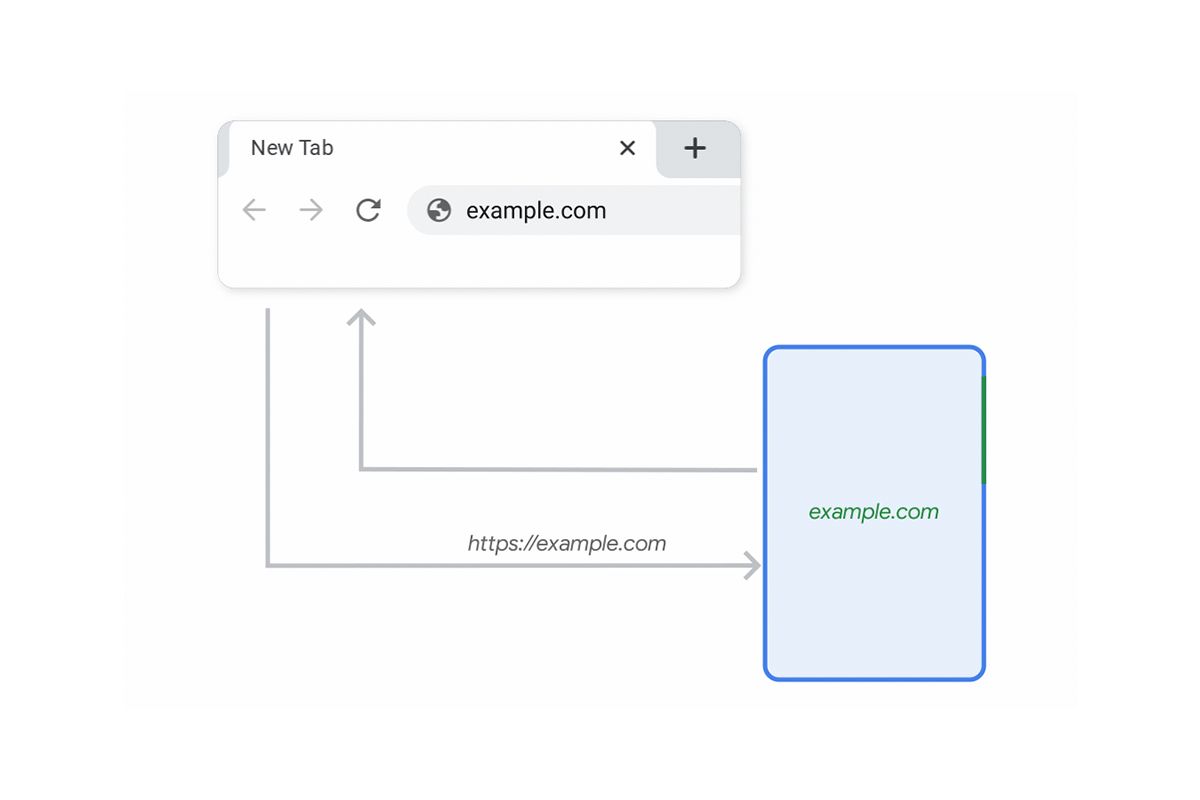Google started testing a change in Chrome earlier this year to improve page load times for encrypted websites. The change modified the Omnibox and autocomplete code in the browser to automatically load HTTPS versions of websites by default, without going to the unencrypted version first. Google has now announced that this change will roll out with the Chrome 90 update for desktop and Android.
Chrome 90 for desktop and Android rolled out on the beta channel earlier this month with an AV1 encoder to improve video conferencing. According to a recent blog post from the company, the update will also include the change mentioned above, which will alter the address bar's behavior to use https:// by default. This will not only improve privacy but also ensure faster loading speeds for websites that support HTTPS.
As Google explains, "Chrome users who navigate to websites by manually typing a URL often don’t include “http://” or “https://”. For example, users often type “example.com” instead of “https://example.com” in the address bar. In this case, if it was a user’s first visit to a website, Chrome would previously choose http:// as the default protocol. This was a practical default in the past, when much of the web did not support HTTPS."
Starting with Chrome 90, the browser will default to HTTPS for most typed navigations that don't specify a protocol. Google claims that this isn't only a security and privacy improvement, but it will also improve the initial loading speed of websites that support HTTPS, as Chrome will connect directly to the HTTPS endpoint without being redirected from http:// to https://.
In cases where a website doesn't support HTTPS, Chrome will fall back to HTTP after the HTTPS attempt fails. This will include cases where there are certificate errors, such as a name mismatch or untrusted self-signed certificate, or connection errors, such as DNS resolution failure.
As mentioned earlier, this change will roll out to Chrome Desktop and Chrome for Android with version 90. It will roll out to Chrome on iOS in the coming weeks.


